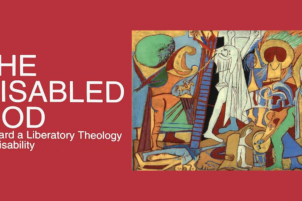Some of the fondest memories I have of Judaism growing up are going to the synagogue to help my father and other members of the community build the Sukkah. I got to spend time with my father and my friends while doing it. As I shared last year, with my disabilities, it took me a long time to feel comfortable in my own skin, and my Shul [synagogue] played a major role in helping me to come out of my shell.
Sukkot, the Jewish harvest festival, commemorates the years that the Jews spent wandering the desert, suffering many hardships while building a generation spiritually ready to enter the land of Israel. We celebrate how God protected our people and helped deliver us to the promised land. Sukkah (plural Sukkot) translates roughly to hut, or booth. During Sukkot, we are meant to live in these Sukkahs with roofs made of branches and leaves. We live in these huts, exposed to the world, to remind us that the greatest true security and protection we have comes from God. The holes in the roof also allow us to see up to the heavens.
The great thing about this kind of spiritual protection is that it doesn’t actually require the booth. In fact, the spiritual protection, whether from God or the memories of building with my father, is something I can bring with me everywhere. As I take the clean slate granted to me by Yom Kippur and hope to do even better next year, I’m grateful for the idea of spiritual protection and support.
There is another critical idea, however, that I learned from the sukkah. Because the sukkah has no specific structure and instead has very minimal requirements, it is, by definition, easy to make accessible. Yet so many sukkot are not accessible because we haven’t planned to make them so. Luckily, a sukkah is something we get to re-plan every year. I’m hoping that we will intentionally build Sukkot to include those “members of our tribe” who have access barriers. That means, among other things, making sure the door on the Sukkah is wide enough, putting it in an easily accessible place, or at least ensuring that there is a wheelchair ramp for people to enter the Sukkah if it is raised. The building is literally about spiritual protection, which is something we want every person to experience.
This Sukkot, let us recommit to fully including members of the Jewish community with disabilities in all aspects of Jewish communal life. Each of us, Jews with and without disabilities, can take little steps every day to make the world a little better, and a little more inclusive of each other. If we do this mitzvah, this commandment, a little bit today, a little bit tomorrow, and the next day, and the next, eventually we can bring about the world that we want: a warm shelter where all are included.
Chag Sameach, Moadim l’simcha, and may you enjoy all that this new year has to offer!








